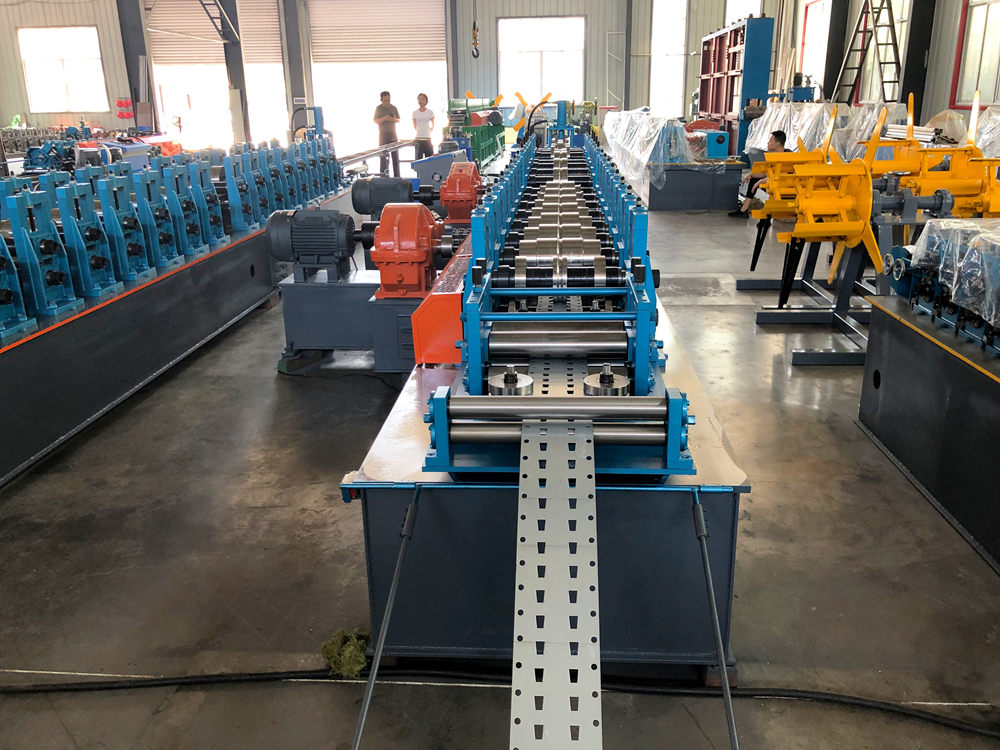
Understanding Hydraulic Thread Rolling Machines A Supplier's Guide
Thread rolling machines have become essential equipment in the manufacturing sector, especially for businesses involved in producing threaded fasteners. Among the most popular types of thread rolling machines are hydraulic thread rolling machines, which utilize hydraulic pressure to create threads on various materials. This article explores the functionality, benefits, and critical considerations when sourcing a hydraulic thread rolling machine from a supplier.
What is a Hydraulic Thread Rolling Machine?
A hydraulic thread rolling machine is a specialized piece of equipment designed to form threads on a workpiece through the rolling process, which is distinct from cutting. During the rolling process, the workpiece (usually metal) is placed between two dies that exert pressure, causing the material to flow and form precise threads. This method is advantageous, as it enhances the strength of the threads compared to traditional methods due to the work-hardening effect of the rolling process.
Benefits of Using Hydraulic Thread Rolling Machines
1. Enhanced Thread Precision Hydraulic thread rolling machines are known for their ability to produce highly accurate and uniform threads. This precision is critical in industries requiring tight tolerances, such as aerospace and automotive manufacturing.
2. Material Conservation Unlike cutting processes that remove material, rolling reshapes it, resulting in less waste. This material efficiency can lead to significant cost savings for manufacturers.
3. Improved Mechanical Properties The rolling process effectively alters the material's grain structure, resulting in threads that offer greater tensile strength and resistance to fatigue. This translates into higher quality fasteners that can withstand extreme conditions.
4. Higher Production Rates Hydraulic machines can operate at a faster pace compared to their mechanical counterparts. They provide a continuous and smooth operation, leading to increased productivity and reduced cycle times.
5. Versatility Hydraulic thread rolling machines can be used to produce a wide variety of threads, including standard and custom sizes, making them suitable for various applications in different industries.

Selecting a Reliable Supplier
When considering the purchase of a hydraulic thread rolling machine, it is vital to choose a reputable supplier. Here are some key factors to assess
1. Experience and Reputation A well-established supplier with a proven track record in the industry is more likely to deliver high-quality machines. Look for customer reviews, testimonials, and case studies to gauge their reliability.
2. Quality Assurance Ensure that the supplier adheres to strict quality control standards. Certifications such as ISO can indicate a commitment to maintaining high-quality production processes.
3. Technical Support and Service Choosing a supplier that offers robust technical support is crucial. This includes installation assistance, operator training, and ongoing maintenance services, which can be essential for the longevity and efficiency of the machine.
4. Customization Options Depending on your specific requirements, you may need a machine with custom features. A good supplier will offer a range of options or the ability to create tailored solutions to meet your production needs.
5. After-Sales Service Reliable after-sales service is a significant aspect of supplier selection. Whether you need spare parts or assistance with repairs, a supplier that offers prompt and effective service can minimize downtime and enhance productivity.
Conclusion
Hydraulic thread rolling machines play a vital role in the production of robust and high-quality threaded fasteners. Their numerous benefits, including precision, efficiency, and enhanced mechanical properties, make them a worthwhile investment for manufacturers. However, sourcing such machines requires careful consideration of supplier qualifications and support capabilities. By choosing a reputable supplier, manufacturers can not only acquire an efficient machine but also ensure that they have the necessary support throughout the equipment's operational life. As industries continue to advance, hydraulic thread rolling machines will remain integral to meeting the rising demands for quality and performance in threaded products.